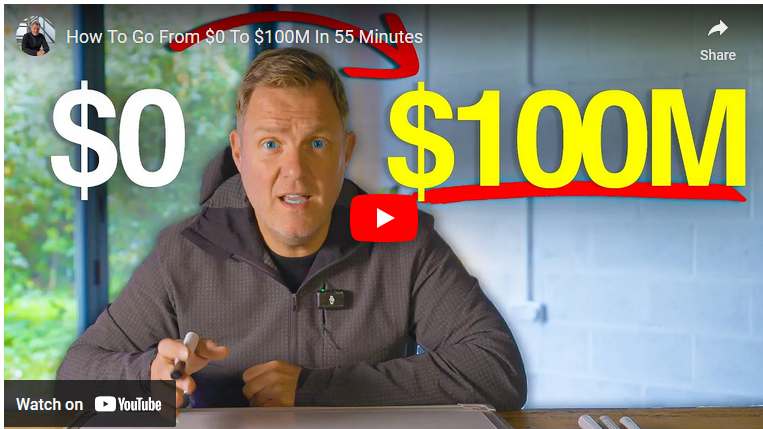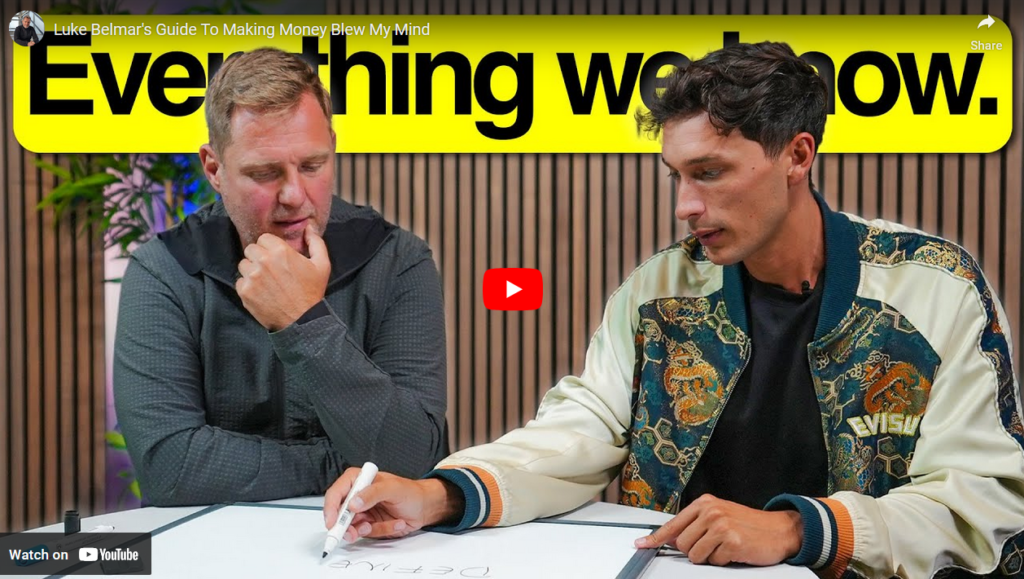##SUMMARY:
Vin Jiang, a communication skills teacher with a background in magic and keynote speaking, discusses his journey from invisibility to influence. He shares insights on personal growth, the importance of truth-sayers, and leveraging one’s voice as an instrument for impactful communication.
IDEAS:
- Vin Jiang emphasizes the transformative power of honest feedback for personal growth.
- Teaching communication skills is deeply personal for Jiang, motivated by his son’s autism.
- Jiang’s journey from a magician to a keynote speaker highlights adaptability.
- The importance of self-awareness in improving communication skills is stressed.
- Jiang suggests recording and reviewing oneself speaking to identify areas for improvement.
- Effective communication involves energizing sentences from start to finish.
- Jiang’s approach to learning includes hiring experts to accelerate personal development.
- The transition from live keynote speaking to virtual workshops was spurred by COVID-19.
- Jiang’s content creation strategy evolved from quantity to learning from audience engagement.
- The realization that professional success can lead to personal unhappiness led to reevaluation.
- Early intervention and expert guidance were crucial in addressing his son’s autism.
- Jiang’s teaching is driven by a desire to be prepared for his son’s future communication needs.
- The story of seeking help during a personal crisis underscores the value of support networks.
- Jiang’s content success on social media came from persistence and learning what resonates.
- Hiring a speech pathologist can improve articulation and clarity for non-native English speakers.
- Jiang’s method of teaching communication is influenced by his multicultural background.
- The shift from performing magic to teaching communication reflects Jiang’s growth and priorities.
- Jiang’s experience with venture capitalists highlighted the importance of presentation skills.
- The balance between professional demands and personal happiness is a recurring theme.
- Jiang advocates for continuous learning and adaptation in one’s career and personal development.
INSIGHTS:
- Honest feedback is crucial for breaking through personal narratives that hinder growth.
- Personal motivations can deeply enrich one’s professional endeavors, adding layers of purpose.
- Adapting communication techniques to audience needs enhances effectiveness and engagement.
- Continuous self-review and adaptation are key to mastering effective communication skills.
- Leveraging expertise from various fields can accelerate learning and personal development.
- Virtual platforms offer new opportunities for reaching audiences without sacrificing personal values.
- Persistence in content creation, coupled with audience feedback, can lead to breakthrough success.
- Support networks play a critical role in navigating personal and professional challenges.
- Articulation and clarity in communication are essential for authority, especially for non-native speakers.
- Balancing professional success with personal fulfillment requires constant reevaluation and adjustment.
QUOTES:
- "You need a truth-sayer in your life because other people will just keep allowing you to create that narrative that doesn’t allow you to grow."
- "I don’t want to be invisible anymore."
- "Reality is negotiable."
- "Don’t be so attached to who you are in the present that you don’t give the future version of yourself a chance."
- "The way you speak is just a series of behaviors, and behaviors can be changed."
- "I was invisible for the longest time in my life up until that moment."
- "My only hope is this father will be very ready and prepared to help him take on the challenges that he’s going to face in his life."
- "I’ve created something that made me severely unhappy."
- "I’ve been creating content for eight-nine years."
- "I had tasted it now I didn’t care what it took."
- "I’m doing it in my garage."
- "I’ve got a lot of listeners from Asia and India."
- "I used to say the number three as free."
- "I’ve never really said this before because but it is what it is; it’s the truth."
- "I’ve never seen my dad more happy."
- "I’m still playing some of the games that he was talking about."
- "I’m tired I got to do something different."
- "I’m like now my turn to hate you."
- "I’m nobody I’m nothing."
- "I’m just a gold digger."
HABITS:
- Vin Jiang spends seven days each year reflecting on his past year for personal growth.
- He records himself speaking to identify areas for improvement in communication.
- Jiang hires experts in various fields to accelerate his learning process.
- He transitioned from live speaking engagements to virtual workshops due to COVID-19.
- Jiang creates content consistently, learning from audience engagement to improve.
- He seeks honest feedback from close friends and family for personal development.
- Jiang practices energizing his sentences completely for clearer communication.
- He hires speech pathologists to improve articulation and clarity in speaking.
- Jiang dedicates time to understanding his son’s needs to better support him.
- He reevaluates his professional pursuits regularly for alignment with personal happiness.
- Jiang experiments with different content formats on social media for greater impact.
- He uses self-awareness exercises to enhance his communication skills continually.
- Jiang prioritizes learning over maintaining a static identity or skill set.
- He balances professional demands with personal life by limiting travel for work.
- Vin Jiang engages in regular self-review sessions to refine his teaching methods.
FACTS:
- Vin Jiang teaches communication skills, drawing from his background in magic and speaking.
- He emphasizes the importance of honest feedback for growth and improvement.
- Jiang transitioned from live keynote speaking to virtual workshops due to COVID-19.
- His content creation strategy evolved through persistence and audience feedback analysis.
- Seeking expert guidance played a crucial role in addressing his son’s autism early on.
- Jiang’s professional success led him to reevaluate his priorities towards personal happiness.
- He has been creating content on social media for eight-nine years before finding success.
- Hiring a speech pathologist improved his articulation and clarity as a non-native English speaker.
- Jiang’s teaching is motivated by a desire to be prepared for his son’s future challenges.
- The balance between professional success and personal fulfillment is a key theme in his journey.
REFERENCES:
- The World of Magic – Inspired Vin Jiang’s approach to engaging audiences.
- Keynote Speaking – A career path that combined Vin’s interests in teaching and performing.
- Vocal Classes – Helped Vin learn how to use his voice effectively as an instrument.
- Theater Classes – Taught Vin how to use body language to support his communication.
- ESL Teachers – Recommended by Vin for non-native English speakers to improve grammar.
- Speech Pathologists – Suggested by Vin for improving articulation and mouth movements.
ONE-SENTENCE TAKEAWAY:
"Effective communication is a blend of self-awareness, continuous learning, and adapting behaviors."
RECOMMENDATIONS:
- Record yourself speaking regularly for self-awareness and improvement.
- Hire experts like ESL teachers or speech pathologists for targeted learning.
- Reflect annually on your past year for personal growth insights.
- Transition activities online when possible to balance work-life priorities.
- Use audience feedback on social media to refine content creation strategies.
- Seek honest feedback from close friends or family for genuine growth opportunities.
- Practice energizing your sentences completely for clearer communication.
- Reevaluate professional pursuits regularly for alignment with personal happiness.
- Experiment with different content formats on social media for greater impact.
- Engage in regular self-review sessions to refine teaching methods continuously.
- Balance professional demands with personal life by limiting travel for work when possible.
- Prioritize learning over maintaining a static identity or skill set for continuous improvement.
- Use self-awareness exercises like recording and reviewing your speech for enhancement.
- Consider virtual platforms for reaching audiences without sacrificing personal values.
- Embrace the mindset that behaviors related to communication can be changed and improved.


